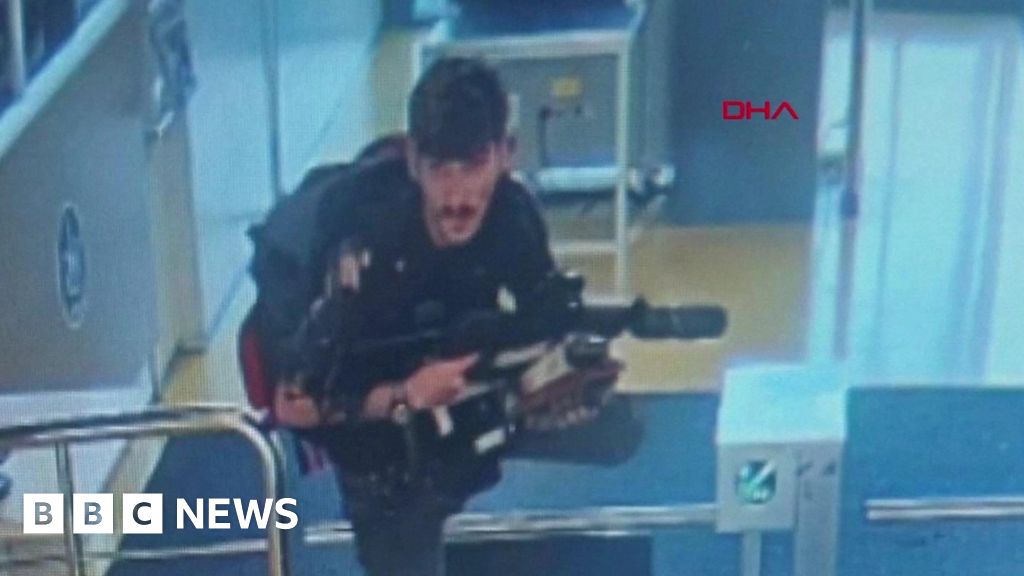The Turkish government had previously implicated the PKK, identifying the attackers as PKK members Ali Orek and Mine Sevjin Alcicek.
It subsequently launched dozens of air strikes on what it described as PKK sites in Iraq and Syria.
Turkey says it has killed 59 “terrorists” – though the Kurdish-led Syrian Democratic Forces said at least 12 civilians were among the dead.
The Kurdistan Workers’ Party (PKK) is banned as a terrorist organisation in Turkey, the US and UK, and has been fighting against the Turkish state since the 1980s for greater rights for the country’s significant Kurdish minority.
The PKK’s armed wing, the HPG, described Orek and Alcicek as an “autonomous team” belonging to the “Immortals Battalion”.
It described them as “heroes” who carried out the attack with “high determination”.
The HPG said TAI was a “military target” that it had a “legitimate right” to attack as it was where “weapons of massacre are produced”.
It claimed the military equipment produced there had killed “thousands of civilians, including women and children”.
Turkish President Recep Tayyip Erdogan called the attack “heinous”.
He said that “no terrorist organisation, no evil focus targeting our security will be able to achieve their goals”.
Turkish Vice-President Cevdet Yilmaz said four of the victims attack near Ankara were TAI employees, while the fifth was a taxi driver.
The victims were named by Turkey’s state-run news agency as Cengiz Coskun, a quality control officer, Zahide Guclu, a mechanical engineer, Atakan Sahin Erdogan, a security guard, another employee called Huseyin Canbaz and Murat Arslan, the taxi driver.
TAI is a key player in Turkey’s aerospace industry, designing, developing and manufacturing various aircraft for commercial and military use.
It is the company designated by the Nato member to be the licensed manufacturer for the US-designed F-16 fighter jets. TAI also plays a role in modernising older aircraft for the Turkish military.
The HPG said it “does not take actions frequently as a principle”, but occasionally carried out “self-sacrificing” acts that served as “warnings and messages” to the Turkish government.
Interior Minister Ali Yerlikaya said the two attackers had been “neutralised”.

